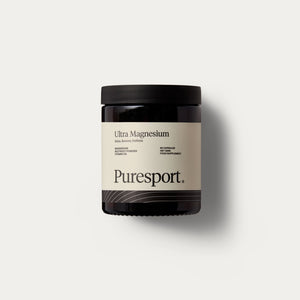Turmeric Ingredient Overview
Turmeric is widely known for its use in spicy food, but its health benefits have also become increasingly known to the public. We’re going to explore everything that needs to be known about turmeric and its potential health benefits, including the benefits of turmeric with black pepper extract, whether you should take turmeric extract capsules, and more.
What is Turmeric?
Turmeric is a plant that is also known as curcuma longa, and it is actually related to ginger, as they are both members of the zingiberaceae family. The plant is native to Southeast Asia and India, and it requires high temperatures (between 20 and 30 degrees C) to grow.
Turmeric powder is processed from the plant’s rhizomes, which share the same bright colour as the powder itself. While the rhizomes can be used when they’re fresh, they’re typically boiled in water, dried out, and then ground up into a powder. This powder is then either used as a dye (due to its bright yellow colour) or a spice.
This spice has long been used in Indian cuisine, but it has also played a key role in Ayurvedic medicine for centuries. When used as a traditional medicine, turmeric is known as haridra. Throughout history, the spice has also been used in Chinese traditional medicine, Siddha medicine, and in religious rituals.
Historical evidence suggests that turmeric was spread throughout Austronesia before European contact, and that is a large part of why it is commonly used in their religious rituals. The oldest Turmeric that has been discovered by archaeologists dates back to between 2600 and 2200 BC, and it was found in Northern India.
Turmeric Root Extract Health Benefits
Anti-Inflammatory Effects
The main ingredient in turmeric extract is curcumin, and this compound has been shown to have many potential health benefits. While it is still the topic of active study, many studies have determined that it plays a role in reducing inflammation in our systems. Long-term inflammation has been linked to the development of several diseases.
Inflammation is typically caused by messengers in our bodies known as cytokines, and overproduction of cytokines is usually responsible for chronic inflammation. Several studies have suggested that high doses of turmeric can help cut down on the level of cytokines that are produced, therefore reducing inflammation.
Antioxidant Capabilities
Oxidative stress is responsible for much of the degradation that our bodies experience over the course of our lives. This kind of stress has also been linked to the development of several diseases, and some early studies are suggesting that a turmeric extract supplement can help through its antioxidant effects.
Studies have shown that curcumin plays an antioxidant role because of its ability to neutralise free radicals, which are the molecules responsible for oxidative stress. Animal studies have shown that curcumin can not only block free radicals, but it can also increase the production of other antioxidants.
Improved Brain Health
While we used to think that neurons could not grow after childhood, recent studies have determined that they can still create new connections and even multiply. What’s responsible for this is BDNF (Brain-Derived Neurotrophic Factor), which essentially creates the proteins that are responsible for producing neurons and keeping them alive.
Early studies are showing that curcumin may be able to help increase the levels of BDNF in your brain. This can potentially help prevent the worsening of diseases like Alzheimer’s and dementia, but the results have yet to be tested in humans, so further study on the subject is currently required.
Turmeric With Black Pepper Extract Benefits
One of the main issues associated with curcumin is that it is not readily absorbed by the body. This means that something like a pure golden turmeric root extract may not easily be absorbed unless you pair it with other supplements. Thankfully, you can pair it with an extremely common one: black pepper.
It’s recommended that you take about 20 mg of piperine for every 2 mg of curcumin to ensure that you get the best possible absorption of the substance. This is due to curcumin’s relatively low bioavailability, though piperine paves the way for it, ensuring that it’s processed for a longer time in the liver, improving its absorption.
How to Extract Curcumin from Turmeric Powder
Curcumin extraction may be difficult to perform at home, though on an industrial level, it’s performed by grinding the turmeric into a powder and then combining it with a suitable solvent. Most of the time, this solvent will remove the colour from the curcumin.
Turmeric Oil Extraction Method
Organic turmeric root extract is sometimes also turned into an oil. Once again, turning turmeric into an oil is often a challenging task at home, though it’s not impossible. In an industrial or scientific setting, extraction is performed by using steam, extraction with hexane, or hydro-distillation.







